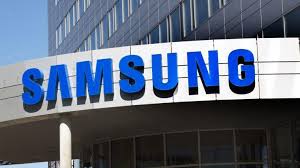Samsung Announces $7 Billion Stock Buyback Amid AI Concerns and Trade Risks
Samsung plans a $7.2 billion stock buyback amid concerns over AI chip competition and trade risks, boosting shareholder returns.

Samsung Electronics Co. has surprised investors with a bold move to buy back 10 trillion won ($7.2 billion) of its own shares over the next year, marking one of the largest shareholder return programs in the company's history. The buyback, set to be executed in stages over the coming 12 months, is designed to boost shareholder value, but it comes as concerns grow over Samsung’s ability to maintain its dominance in the memory chip market amid rising competition and market challenges.
A Strategic Buyback in Two Phases
Starting Monday, Samsung will repurchase approximately 3 trillion won worth of stock, to be canceled by February 2025. The remaining 7 trillion won will be deliberated upon by the company’s board, with details of its execution yet to be finalized. The buyback is seen as an effort to return capital to shareholders and bolster confidence in the company’s stock, which has faced a significant decline over the past year.
AI and Memory Chip Concerns
The announcement comes at a time when investors are increasingly worried about Samsung’s future in the memory chip market. Once the uncontested leader in memory semiconductors, Samsung is now facing pressure from smaller rival SK Hynix, which has secured lucrative contracts with Nvidia to supply high-bandwidth memory (HBM) chips used in the company's AI accelerators.
This shift has led to fears that Samsung may be missing out on the booming AI industry, especially as its competitor establishes a strong foothold in AI-driven chip development. In October, Samsung did announce that it was advancing its own HBM3E memory chips, with plans to supply these next-generation chips to Nvidia by the fourth quarter. However, some analysts remain cautious, noting that it will take time for Samsung to fully catch up in this high-demand market.
Trade Risks and Market Weakness
Adding to the challenges, Samsung's exposure to global trade tensions, particularly between the U.S. and China, has left investors concerned about the company’s long-term growth prospects. As Samsung continues to rely heavily on its Chinese business, risks related to potential U.S. tariffs and protectionist policies under President Donald Trump could add another layer of uncertainty.
Despite a 32% drop in its stock price this year, Samsung shares rose as much as 8.6% on Friday following the buyback announcement. Still, many investors are questioning the company’s ability to recover, with the tech giant facing not only memory market volatility but also a global slowdown in consumer electronics demand.
Stock Valuation and Investor Sentiment
Samsung's shares are currently trading at a discount of more than 10% relative to the consensus estimate of its one-year forward accounting book value, signaling investor skepticism. Some fund managers, like Sat Duhra at Janus Henderson Group, have expressed caution about Samsung’s future performance. “A lower valuation is justified given the trade risks around Korea, the time it will take to catch up in high-bandwidth memory, and the weak memory environment,” said Duhra, adding that other tech stocks—particularly those in Taiwan—might offer better prospects.
Moving Forward: A Critical Moment for Samsung
Despite these challenges, Samsung remains one of the largest players in the global semiconductor and electronics sectors. Its efforts to maintain its market leadership in AI memory chips and respond to growing competitive pressures will be crucial in the coming year. The stock buyback is a clear attempt to stabilize its share price and restore investor confidence, but only time will tell if Samsung can fully capitalize on the AI revolution and mitigate the risks posed by trade tensions and market volatility.
